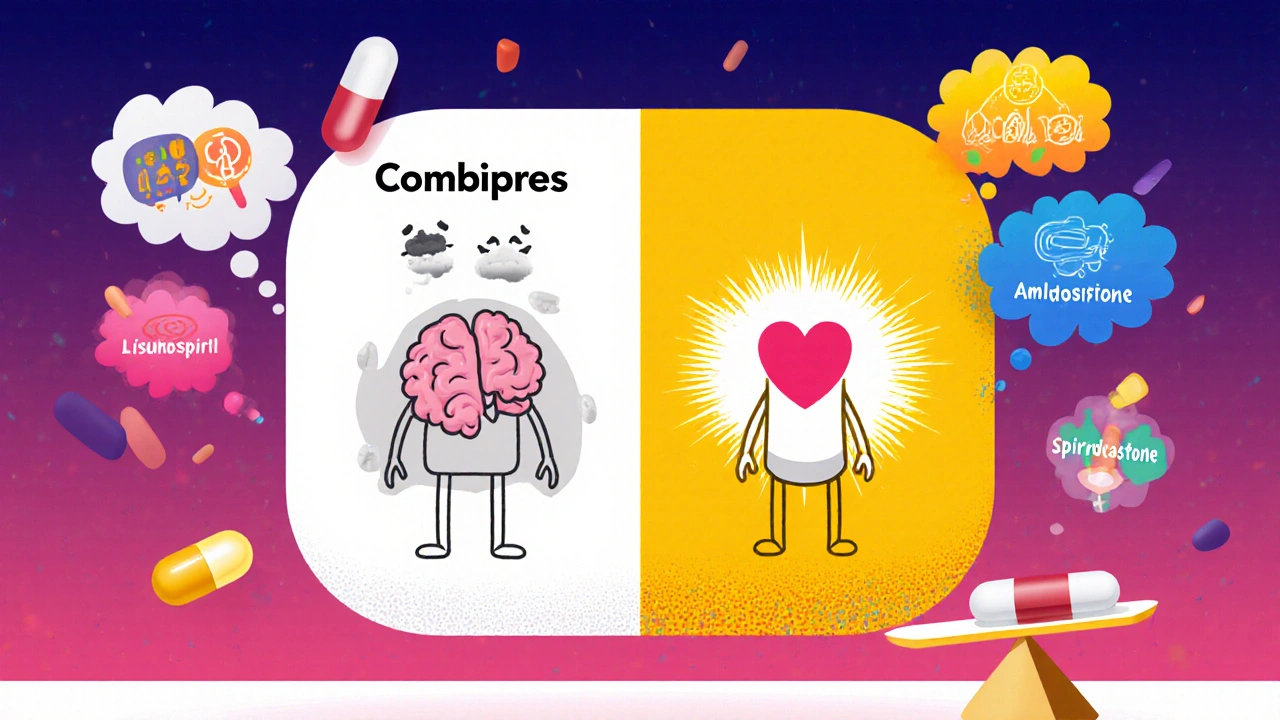Chlorthalidone: What It Is, How It Works, and What You Need to Know
When your doctor prescribes chlorthalidone, a long-acting diuretic used to lower blood pressure by helping your body get rid of extra salt and water. Also known as a thiazide-like diuretic, it's one of the most effective drugs for controlling hypertension over time, especially when other meds don't do enough. Unlike some diuretics that wear off quickly, chlorthalidone sticks around in your system for up to 48 hours, giving you steady control without multiple daily doses. That’s why many doctors choose it for long-term management of high blood pressure—it’s not flashy, but it works.
Chlorthalidone doesn’t just lower blood pressure; it reduces your risk of heart attacks, strokes, and kidney damage by easing the strain on your arteries. It’s often paired with other meds like ACE inhibitors or calcium channel blockers when one drug isn’t enough. But it’s not just about the heart—this drug also helps with fluid buildup from heart failure or liver disease. You might hear it called a "water pill," but that’s oversimplifying it. It’s more like a precision tool your body uses to rebalance fluids and electrolytes.
Related to chlorthalidone are other diuretics, medications that increase urine output to remove excess fluid. Hydrochlorothiazide is the most common alternative, but studies show chlorthalidone often delivers better long-term results, especially in older adults. Then there’s hypertension, the medical term for persistently high blood pressure. High blood pressure is the main reason people take chlorthalidone, and it’s the silent killer behind most heart-related deaths. Managing it isn’t just about taking a pill—it’s about understanding how your body responds to it.
Side effects? They’re real but manageable. You might feel more tired, get muscle cramps, or notice changes in your potassium levels. That’s why your doctor will likely check your bloodwork every few months. It’s not a drug you take and forget—you need to stay aware of how you feel. Drinking enough water, eating bananas or spinach for potassium, and avoiding too much salt all help. And if you’re on other meds—like lithium or NSAIDs—chlorthalidone can interact, so always tell your doctor everything you’re taking.
What you’ll find in the posts below isn’t just a list of articles—it’s a practical toolkit. You’ll see real comparisons with other blood pressure drugs, what the latest research says about safety, how to handle side effects without quitting, and even how chlorthalidone fits into broader heart health strategies. No fluff. No marketing. Just clear, no-nonsense info you can use to talk smarter with your doctor and take better care of yourself.
Compare Combipres (Chlorthalidone and Clonidine Hydrochloride) with Alternative Blood Pressure Medications
Combipres combines chlorthalidone and clonidine to treat high blood pressure, but side effects like drowsiness and dry mouth lead many to seek alternatives. Compare top options like lisinopril/HCTZ, amlodipine/olmesartan, and spironolactone.
View more
